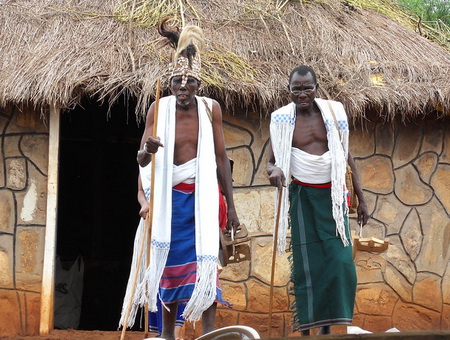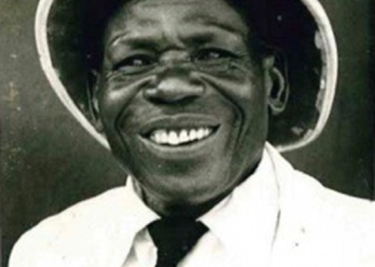Dini ya Wagiriama

Image credit: 101 last tribes
Though largely Muslim and Christian, the Giriama people traditionally worship a God they call Mulungu. This community is the largest sub-group of the Mijikenda. They believe that Mulungu is not only unseen but also above all gods. On behalf of Mulungu, intercessors receive requests for favours from humans and pass them on. He is said to treat people according to their punishable or positive deeds.
A Spiritual People
Mainly located in Kilifi County, the Giriama also believe in the sacred nature of dense forests where they build shelter. Known as makaya, these shelters are built in forests believed to be spiritual sites.
This deep spirituality extends to the Giriama’s engagement in ancestral deity worship. The name of the ancestors is the Koma and every week, the Giriama sacrifice to these beings. Most commonly, alcohol in the form of palm wine (manazi) is given to spirits. These sacrifices often take place in times of strife such as famine, conflict or sickness.
Ancestral Worship and Crafts
The Giriama are known to use wooden crafts as part of ancestral worship. The koma, for example, is said to represent the living dead – hence sharing its name with the name for spirits. The koma are given names of the ancestors that came before out of reverence. In recognition of ancestral spirits, the Giriama shape these wooden carvings to vaguely resemble the human head and body. They are put up following someone’s death as a mark of honour. Koma are fashioned out of hardy, termite-proof wood cut using an axe and completed with a chisel. Not offered for sale and created only on request, the carvings are stuck into the ground at a grave. They can also be placed at a kigojo where elder males convene for meetings.
Religious Charms
Other religious symbols for the Giriama include kiveli. Male crafters carefully piece together these charms with a chain, blue, white and red beads as well as cowrie shells. These beads and shells are sewn onto cow hide and the kiveli is then sold to medicine men. Once the medicine men give these charms to the ill, it is said that ailments disappear if the source of the sickness is an evil spirit. The kiveli’s healing properties are experienced once one wears it under the arm an over one shoulder.
Do you know of any other religious objects through which African faiths are practised? Let us know in the comments!



